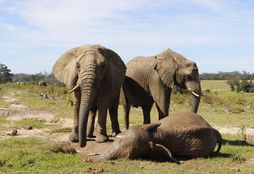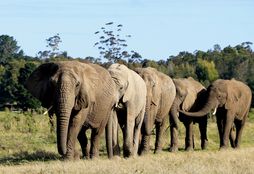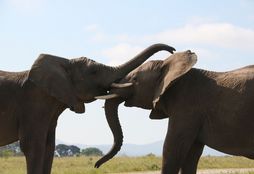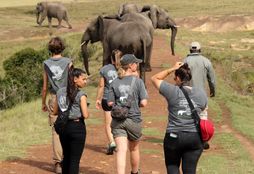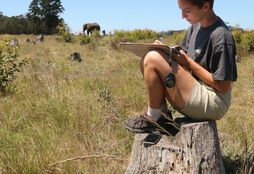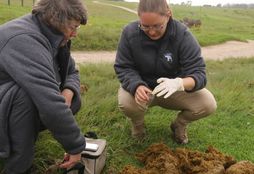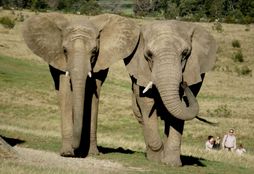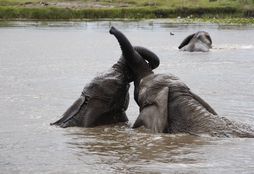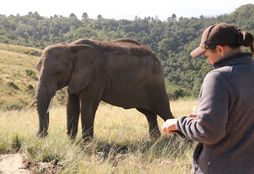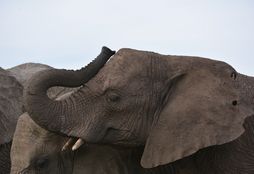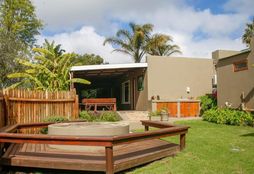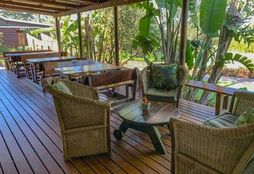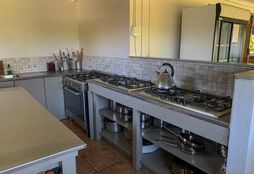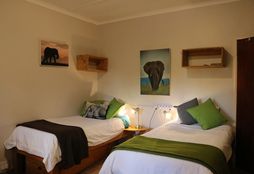Highlights
- Fully immerse in a life among elephants and come up close to the gentle giants
- Night-time observations
Be creative and make crafts to raise funds for the project’s research - Visit schools and help teach children about the environment, biodiversity, and wildlife conservation.
- Experience the Garden Route’s natural beauty.
- Enjoy a variety of activities outside of the project: Bloukrans Bungy (the world’s highest commercial bridge bungee jump), waterfall zipline, elephant & snake sanctuaries, wine estates, skydiving, adventure boating, kloofing, kayaking, etc.
- Make new friends from all over the world.
Project information
The Elephant Research Project was established in 1994 on a beautiful 200ha farm and was the first facility in South Africa to house and care for orphaned African elephants. Over the last thirty years, the project has cared for and raised more than forty elephants. These animals include relocated animals, orphaned calves, and elephants rescued from culls. Some can not be released and remain with the project, but many others have moved on (in their bonded groups) to new homes at various reserves throughout the country.
Baby elephants are orphaned by poaching, herds are culled because they get too numerous for the restricted spaces humans allocate to them, wild habitats shrink and disappear, and the elephants become a ‘nuisance’ as they try their best to survive on the edges of the human world. Older elephants are removed first, and the wisdom these elders used to pass through the generations is lost in an instant. The young ones are left behind without the protection or guidance of a family to help them recover from what they’ve witnessed.
The facility also offers the ability to give older bulls more space, away from the matriarchal herd. In the wild, at a certain age, elephant bulls are kicked out of the breeding herd by the dominant female. These young males join up to form small ‘bachelor herds.’ The project tries to emulate that natural progression by managing the males separately and not forcing them to remain part of the herd where they would be dominated and uncomfortable.
The project’s management style includes a “controlled, free-range environment”, which allows the elephants as much freedom as possible, within the borders of the area they have at their disposal. Following the feeding session, the elephants are free to move away and graze, browse, wallow or play.
Working with elephants is a humbling and awe-inspiring experience. As a volunteer you will contribute in the following aspects:
- Help with elephant care – Preparing food and musical enrichments.
- General maintenance and conservation – cleaning out of the elephant camps, plant, nursery care and alien plant management.
- Support fund-raising through crafts creation, like making dung paper, upcycled elephant key chains and other merchandise.
- Fight against alien invasive vegetation and take care of baby plants
- Environmental education initiatives and activities e.g. visiting schools and helping teach children about the environment, biodiversity, and wildlife conservation
- Help local communities (education, construction, cleaning, creation, and providing a helping hand to other local associations).
- Natural sciences and research
Your role
You will be working Monday - Friday from 07:00 - 17:00
What a typical day can look like:
7:00 - 8:30 Dung walk (dung samples extraction)
8:30 - 10:00 Observation shift (daily field observations)
10:00 - 11:30 Lab work (delve deeper in the purpose of our research)
11:30 - 13:00 Lunch
13:00 - 14:30 Observation shift
14:30 - 16:00 Elephant enrichment in camp (preparing some activities for the elephants)
16:00 - 17:00 Creative session (crafting)
The primary role of volunteers at the project is to assist the team to collect research data from the elephants. These include the following:
- Monitoring of behaviour – following and observing elephants in the field, recording behaviours such as grazing, drinking, playing, dusting and walking.
- Recording social interactions between elephants – how they relate to and communicate with each other using their trunks and bodies.
- Night-time observations of elephant behaviour – what is a good night’s sleep for an elephant?
- Observing and recording interactions between elephants and tourists.
- Botanical surveys of the park – relating plant diversity to grazing patterns and elephant distribution.
- Studies of feeding behaviour and plants eaten by the elephants.
- Making enrichments for the elephants.
- Collection of dung, urine and other samples for laboratory processing and physiological analysis.
- Data input and analysis.
- Compilation of educational presentations.
By the end of your stay, you will have learned a significant amount about elephant biology, social dynamics, behaviour, husbandry, and welfare, and how research practices are conducted, and most likely will have fallen in love with the herd!
It is important to note that this description serves as an example only. The daily tasks and challenges depend on the volunteer, the time of the year and the work that needs to be done. The final job description can therefore vary substantially from the above.
Accommodation
You stay at the project’s Bunkhouse or Mainhouse, located directly on the project’s property. You are accommodated in dorm-style rooms (2-3 volunteers per room) with each bedroom having a private bathroom. Shelves are provided to allow volunteers to settle as they want. The rooms are cleaned every Monday. With your fellow volunteers, you share communal areas like kitchens, veranda and living rooms. Often, volunteers join together for evening get-togethers and also cook their meals together.
Free Wi-Fi is provided. Laundry is available but tokens need to be bought at your own expense.
You’ll be living alongside staff members who are available to assist with any issues.
Meals
A trip to town for food supplies is scheduled every Friday at around 11:00. Food supplies are at your own expense.

